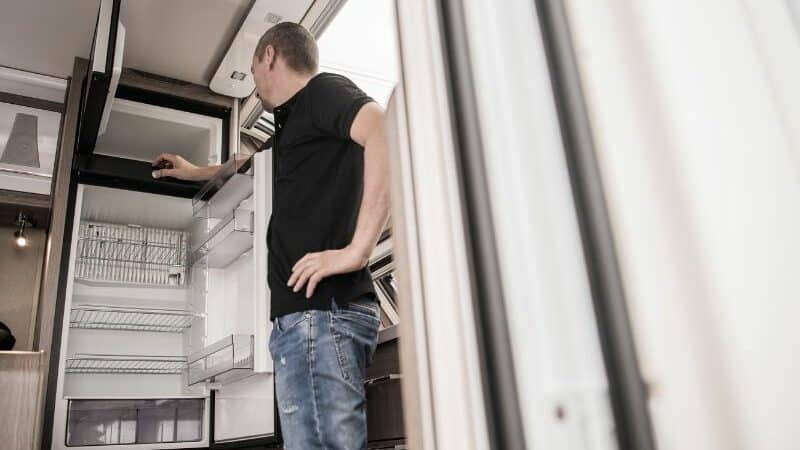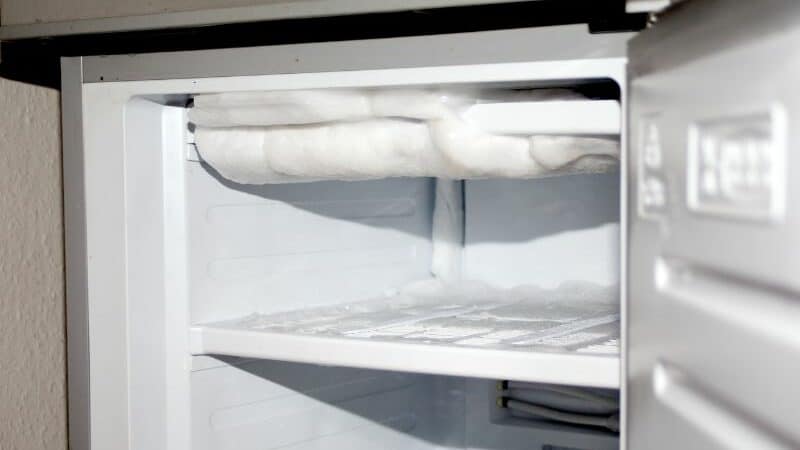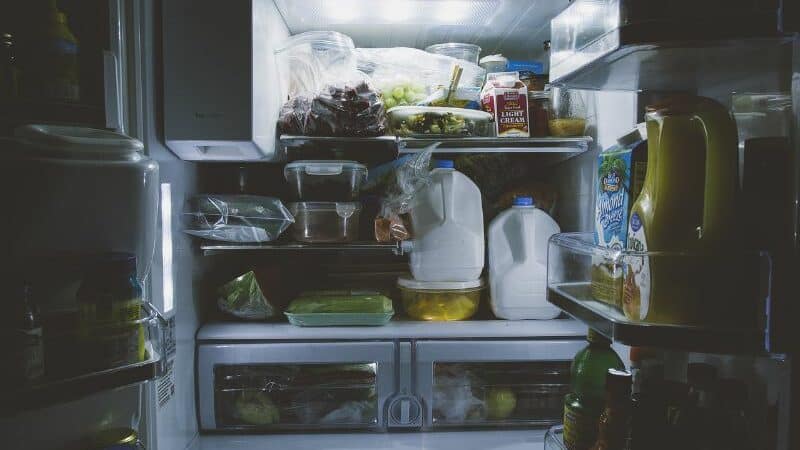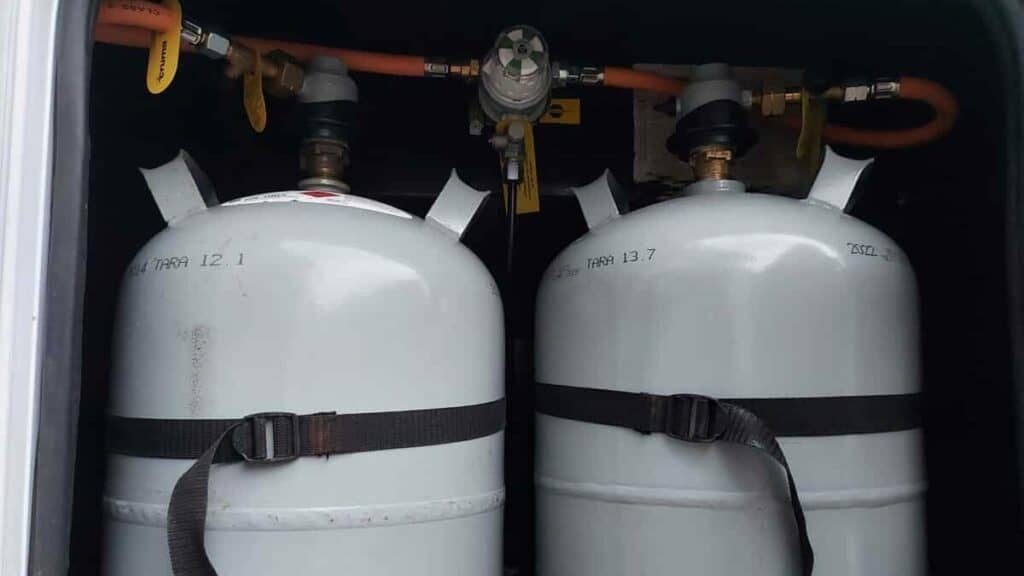This post contains affiliate links (I get a commission at no extra cost to you for purchases made through links in this post).

RV refrigerators are essential appliances for those who enjoy camping, road-tripping, and other outdoor-related activities. But how long does it take for an RV fridge to get cold?
Small or new RV refrigerators typically take five to six hours to reach optimal cooling temperatures. Larger or older models might take anywhere between 12 to 24 hours to reach desired temperatures.
Assuming you want lower than four degrees Celsius (40 degrees Fahrenheit), your cooling times might differ.
The type of refrigerator you have and its age makes a big difference in its ability to cool at an efficient rate. This is a common question among RV owners, and in this article, we will explore the answer in detail.
How Does an RV Fridge Work?
Before we can understand how long it takes for an RV fridge to get cold, it is important to have a basic understanding of how these fridges work. Unlike a traditional fridge that you have in your home, which uses electricity from a power outlet to keep food cold, an RV fridge uses a variety of sources to power its cooling system.
Typically, an RV fridge will use a combination of propane gas, electricity from the RV’s battery, and electricity from an external power source (such as a campsite hookup) to keep the fridge running. The fridge will automatically switch between these power sources as needed, depending on the availability and type of power.
When the fridge is powered by propane, the gas is used to power a small burner inside the fridge. This burner generates heat, which is then used to power a refrigerant gas compressor.
The compressor is responsible for circulating the refrigerant gas throughout the fridge, and the heat generated by the burner causes the refrigerant to expand and cool down. This cooling process is what keeps the food inside the fridge cold.
When the fridge is powered by electricity, the process is similar, but instead of a propane burner, the fridge uses an electric heating element to power the compressor. In this case, the electricity is used to generate heat, which is then used to cool the fridge.
Estimated Time for an RV Fridge to Get Cold?
Now that we understand the basic workings of an RV fridge, we can begin to answer the question of how long it takes for these fridges to get cold. If you know what type of fridge you have, it makes a difference in how to prepare yours for the next trip and to save yourself from a bad RV fridge smell which you can read more on how to get rid of in my other article.
Unfortunately, there is no straightforward answer to the timeline of getting a cold fridge, as there are several factors that can affect the cooling time of an RV fridge. The best advice is to prepare your fridge at least 24 hours before storing food to be safe. These factors include:
Type of RV Fridge
There are several types of RV fridges, but most commonly include absorption fridges and compressor fridges. Absorption fridges are the ones you can power on propane and sometimes 12-volt and 120 or 220 volts, but they consume a lot of electricity. In contrast, compressor fridges are more energy efficient but cannot be powered on propane.
Understanding the type of fridge you have will allow you to cool it down in various ways.
Regularly Cleaning

If your fridge is not cooling as efficiently as it should, you might need to deep clean it. In my experience, it takes roughly four to six hours to cool down to optimal levels after I have cleaned it when I am parked in the shade, and it is not blistering hot outside.
In my experience, it takes roughly four to six hours to cool down to optimal levels
Ambient Temperature
The ambient temperature outside the RV can also affect the cooling time of the fridge. In hot weather, the fridge will have to work harder to maintain a cool temperature inside, which can prolong the cooling time.
On the other hand, in cooler weather, the fridge will have an easier time maintaining a cool temperature, which can speed up the cooling process. So park in the shade the best you can on hot days and stay in the sun as much as possible on cooler days.
Amount of Food Inside Fridge

The more food you have inside the fridge, the longer it will take to cool down. This is because the food inside the fridge will release heat as it cools, making it harder for the fridge to maintain a cool temperature.
If you want your RV fridge to cool down quickly, it is best to avoid overloading it with food. In addition, you do not want to put leftovers in the fridge immediately either. Simply wait for them to cool down before adding them to your fridge.
Adding Ice to Fridge or Freezer
If you have the space or are setting up for a trip, adding ice blocks can help speed up the cooling process. You could even use reusable ice blocks, so you do not have a mess inside the fridge. Ice will help bring down the internal temperature.
Power Source
As mentioned above, RV fridges can use various power sources, including propane, electricity from the RV’s battery, 12 volts, and electricity from an external power source, 110 or 220 volts. The type of power source used can affect the cooling time of the fridge.
For example, propane is not as efficient at powering the fridge as electricity under certain conditions. So if you use propane to power your fridge, it may take longer to get cold. However, propane might be the better option if you follow a few tips.
Does Propane Cool an RV Fridge Faster?

While there is plenty of debate on the cooling speed between electric and propane-powered refrigerators, the race is not an overwhelming win for either power source. But does propane help speed up the process at all?
Propane helps cool RV refrigerators faster, but they are more swayed by temperatures that are outside of the RV. While it has a low noise level as a bonus, it might not be as effective cooling if you have issues trying to level your camper.
To safely run propane RV refrigerators, they must be near perfect on leveling, or otherwise, they will not run properly. If you happen to be off by a few degrees, depending on how picky your model is, it might not ever kick on.
But with that said, I have also been able to run an old RV fridge on propane while parked on a steep hill where it was leaning so much I didn’t even bother to use my leveling blocks. Hence, while they say that you can’t run your fridge on propane if it is unleveled well, in most cases, you can. It’s just not good for your fridge.
It could damage it, and for sure, the cooling efficiency will be worse. I want to mention that if you can’t get your RV perfectly leveled, don’t worry too much about it.
